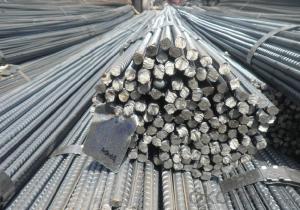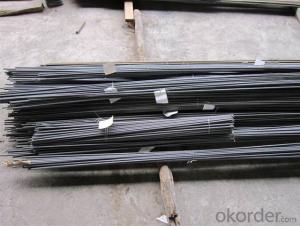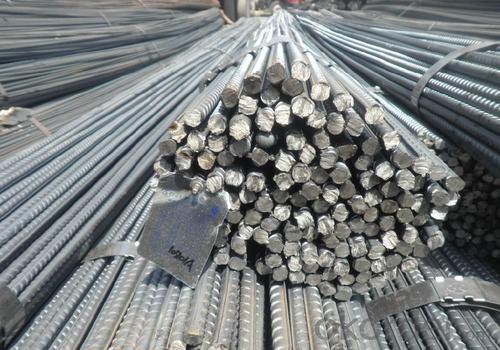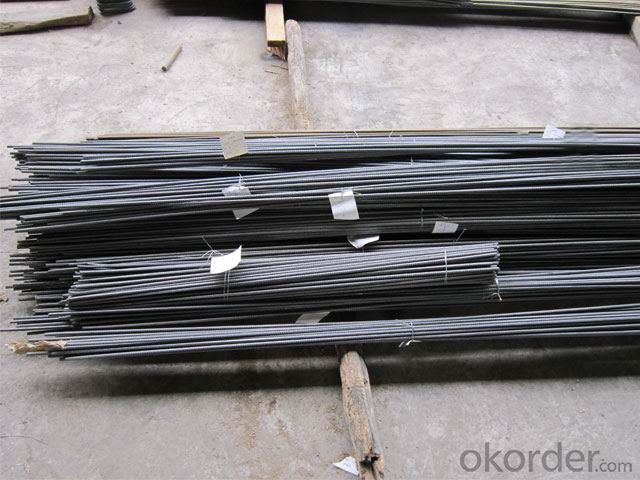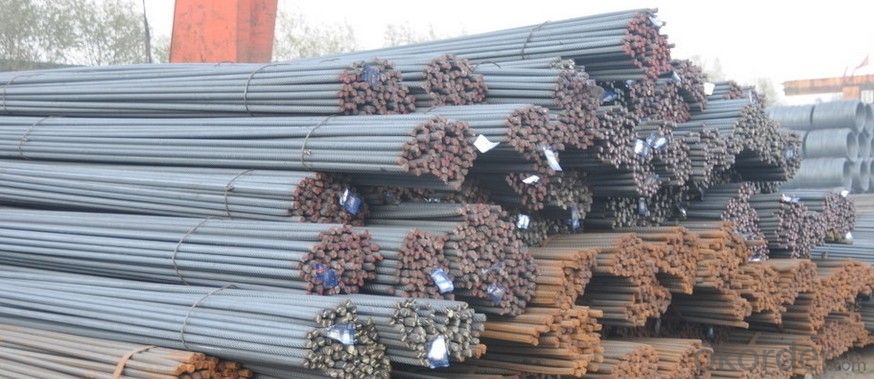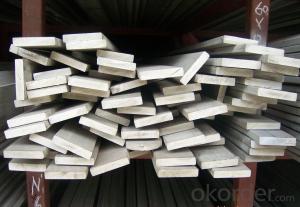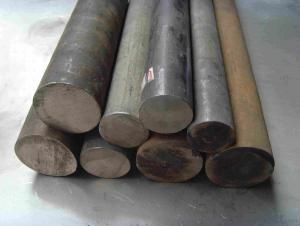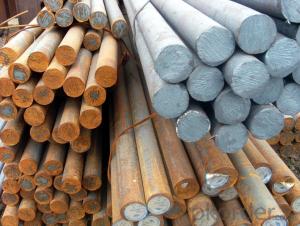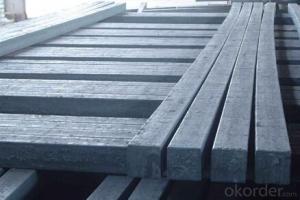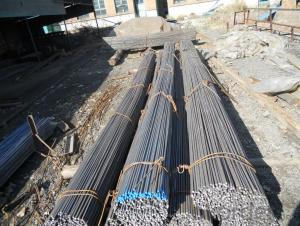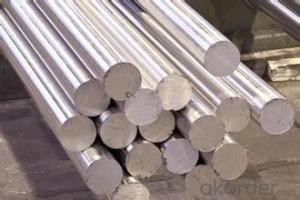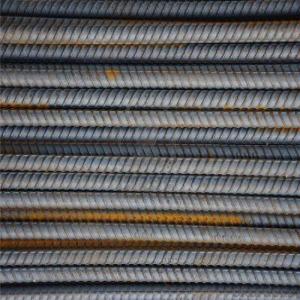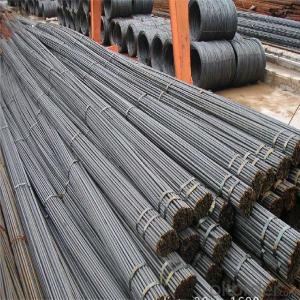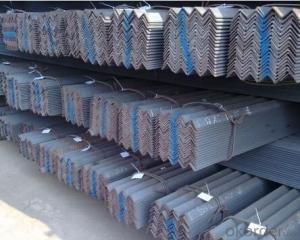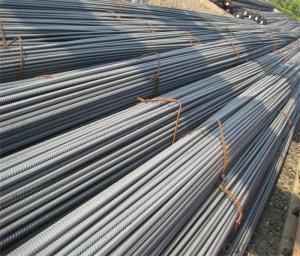Q235 Steel Rebar ASTM GR60,BS GR460,SS400,Q235 Steel Rebar Reinforced Metal Rebar
- Loading Port:
- Tianjin
- Payment Terms:
- TT OR LC
- Min Order Qty:
- 25 m.t.
- Supply Capability:
- 50000 m.t./month
OKorder Service Pledge
OKorder Financial Service
You Might Also Like
Specification
Q235 Steel Rebar ASTM GR60,BS GR460,SS400,Q235 Steel Rebar Reinforced Metal Rebar
Product Details:
Standard | GB(HRB335/HRB400/HRB500); |
BS4449 -1997 GRADE 250B, 460B; BS4449-2005 GRADE 500B; | |
ASTM A615 GRADE 40,GRADE60,GRADE75; ASTM A706; | |
DIN488-1 420S/500S, BST500S | |
JIS G3112 SD35, SD40, SD50,SD390 | |
NFA 35016 FE E 400, FE E 500 | |
CA 50/60 | |
GOST A3 R A500C | |
Surface finished | Screw-thread |
Production capacity | 50,000 MT/month |
Payment term | T/T or 100% L/C at sight |
Package | By bundles. One bundles about 2-3tons |
Specification:
Diameter (mm) | Weight (kg/m) |
8 | 0.395 |
9 | 0.499 |
10 | 0.617 |
11 | 0.746 |
12 | 0.888 |
13 | 1.04 |
14 | 1.21 |
15 | 1.39 |
16 | 1.58 |
17 | 1.78 |
18 | 2 |
19 | 2.23 |
20 | 2.47 |
21 | 2.72 |
22 | 2.98 |
23 | 3.26 |
24 | 3.55 |
25 | 3.85 |
28 | 4.83 |
32 | 6.31 |
36 | 7.99 |
40 | 9.87 |
50 | 15.42 |
Advantage:
· ISO System
· SGS and BV Audited company .
· We offer competitive price with best service .
· Finished Product Inventory-More Than 50000 Tons.
· We have win high reputation based on best quality products.
· We have the most convenient transport and prompt delivery.
· We have high technical production line with top quality products.
Application:
Cold rolled steel ribbed bar is a practical construction steel materials. It is widely used as the fitting bar for various steel bar concrete structure engineering and making of various construction components. With its high strength and the fixing strength with concrete, its sufficient plastic property, it can enhance the technical and the quality of the engineering, reduce the cost of raw materials and the cost of engineering at the same time. The finished products can be round coil or straight sizes.
Product Show:
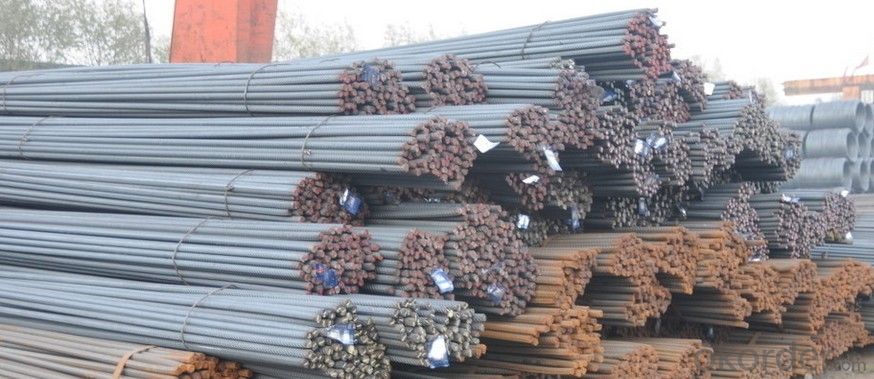
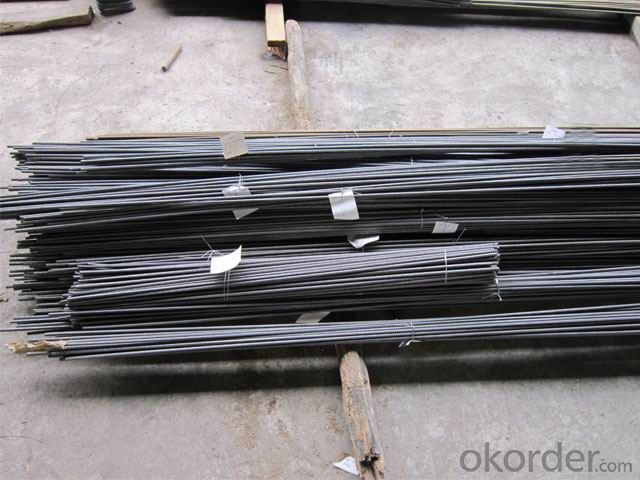
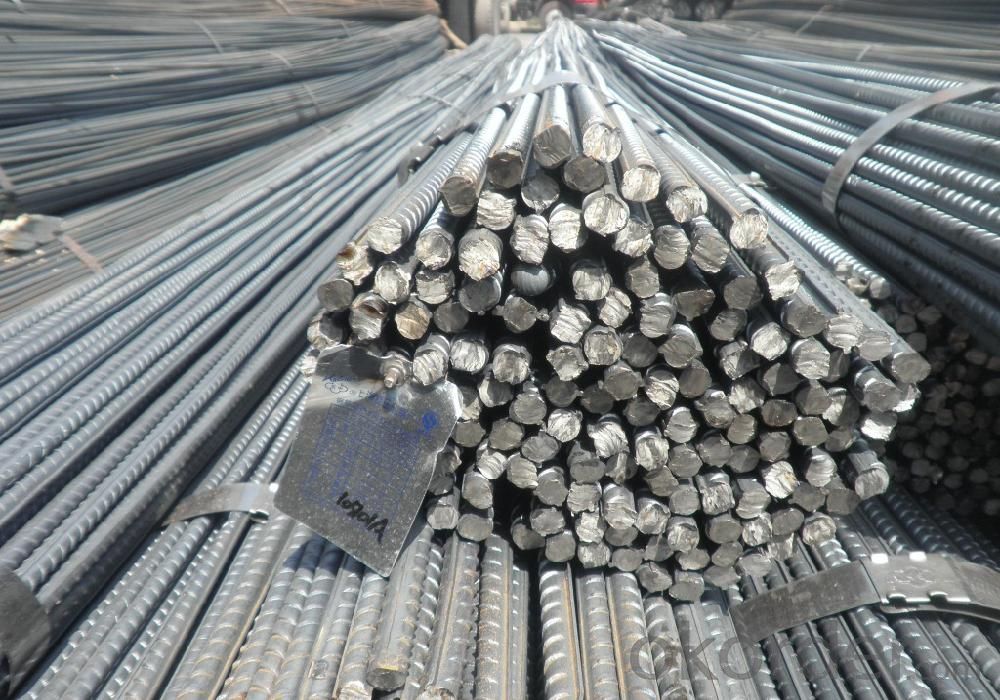
- Q: Can special steel be used for electrical applications?
- Yes, special steel can be used for electrical applications. Special steels such as electrical steel or silicon steel are specifically designed for use in electrical equipment and applications. These steels have low electrical resistivity and high magnetic permeability, making them ideal for use in transformers, motors, generators, and other electrical devices that require efficient electricity conduction and magnetic properties.
- Q: Can special steel be used in the aerospace industry?
- Yes, special steel can be used in the aerospace industry. Special steel alloys, such as stainless steel or titanium alloys, are commonly utilized in the aerospace industry due to their high strength-to-weight ratio, corrosion resistance, and ability to withstand extreme temperatures and pressures. These properties make special steel suitable for various components in aircraft and spacecraft manufacturing, including structural elements, engine parts, landing gears, and fasteners.
- Q: What are the advantages of using special steel in the marine sector?
- Using special steel in the marine sector offers numerous benefits. Firstly, special steel is renowned for its exceptional strength and durability, which is crucial in an environment that constantly exposes structures to harsh and corrosive conditions like saltwater, extreme temperatures, and constant vibrations. The high resistance to corrosion that special steel possesses makes it the perfect choice for marine applications, as it can effectively endure the corrosive effects of seawater and prevent any structural damage. In addition, special steel provides outstanding weldability, a crucial characteristic when constructing marine vessels and offshore structures. The ability to seamlessly join steel components guarantees the overall integrity and strength of the structure, effectively reducing the risk of failures or accidents. Furthermore, special steel boasts a high fatigue strength, enabling it to withstand cyclic loading for extended periods without encountering failure. This is particularly significant in the marine sector where structures endure constant dynamic loads such as waves and wind forces. The fatigue resistance of special steel ensures the longevity and reliability of marine structures, resulting in reduced maintenance costs and enhanced safety. Moreover, special steel offers design flexibility and versatility. It can be effortlessly shaped and molded into intricate and diverse forms, allowing for innovative and efficient designs in marine structures and vessels. This flexibility also allows for weight optimization, a crucial factor in the marine industry for improving fuel efficiency and reducing emissions. Lastly, special steel is readily available and cost-effective. With advancements in manufacturing processes and technologies, the production of special steel has become more efficient and affordable, making it a viable choice for the marine sector. The availability and affordability of special steel make it the preferred material for various marine applications. To conclude, the utilization of special steel in the marine sector brings forth numerous advantages, including exceptional strength and durability, resistance to corrosion, excellent weldability, high fatigue strength, design flexibility, and cost-effectiveness. These properties establish special steel as a reliable and efficient material for constructing marine structures, ensuring their longevity, safety, and operational efficiency.
- Q: What are the common challenges in welding special steel?
- When welding special steel, there are several challenges that differ from welding regular carbon steel. Some common challenges in welding special steel include the following: 1. High carbon content: Special steels often have a high carbon content, which can increase hardness and brittleness. Achieving a proper weld without cracks or defects can be more difficult. 2. High alloy content: Special steels often contain various alloying elements like chromium, nickel, or molybdenum, which can affect weldability. These elements can introduce complexities, such as increased susceptibility to heat-affected zone (HAZ) cracking or the formation of brittle phases. 3. Heat sensitivity: Special steels are often more sensitive to heat during welding. Excessive heat can cause grain growth, reduced mechanical properties, or distortion of the welded structure. Therefore, careful control of heat input and preheating techniques may be necessary. 4. Pre-weld and post-weld treatments: Specific pre-weld and post-weld treatments may be required for special steels to ensure proper weld quality and performance. These treatments can include preheating, stress relieving, or post-weld heat treatment. Failure to follow these procedures can result in residual stresses or reduced mechanical properties. 5. Joint design and fit-up: The design and fit-up of the weld joint can also present challenges. Special steels may require specific joint configurations, such as a double-V or double-U groove, to ensure adequate penetration and fusion. Additionally, tight tolerances may be necessary to maintain desired mechanical properties. 6. Welding process selection: The choice of welding process can greatly impact the success of welding special steel. TIG or laser welding may be more suitable for high-alloy steels, while MIG or submerged arc welding may be better for specific applications. Selecting the appropriate welding process is crucial for achieving a sound weld with desired properties. To overcome these challenges, it is essential to thoroughly understand the specific type of special steel being welded and follow proper welding procedures and techniques. This may involve conducting pre-weld qualification tests, using suitable welding consumables, and ensuring proper heat control throughout the welding process. Additionally, working with experienced welders and seeking guidance from experts in special steel welding can effectively overcome these challenges.
- Q: What are the different non-destructive testing methods used for special steel?
- There are several non-destructive testing methods used for special steel, including ultrasonic testing, magnetic particle testing, liquid penetrant testing, radiographic testing, and eddy current testing. These methods help to detect any defects or flaws in the steel without causing any damage. Ultrasonic testing uses high-frequency sound waves to evaluate the internal structure of the steel, while magnetic particle testing and liquid penetrant testing are used to detect surface defects through the use of magnetic fields and dye penetrants, respectively. Radiographic testing involves the use of X-rays or gamma rays to examine the internal structure of the steel. Eddy current testing, on the other hand, uses electromagnetic induction to detect surface or near-surface defects. Overall, these non-destructive testing methods play a crucial role in ensuring the quality and integrity of special steel.
- Q: How does special steel meet the requirements of specific industries?
- Special steel meets the requirements of specific industries by offering superior characteristics such as high strength, corrosion resistance, heat resistance, and wear resistance. These properties make it suitable for applications in industries like automotive, aerospace, energy, and machinery, where durability, efficiency, and safety are crucial. Additionally, the versatility of special steel allows for customization and formulation of alloys that cater to specific industry needs, ensuring the desired performance and reliability in various applications.
- Q: How long does special steel last compared to regular steel?
- Special steel generally lasts longer than regular steel due to its unique composition and properties. Regular steel is made mostly of iron and carbon, whereas special steel is alloyed with other elements such as chromium, nickel, and molybdenum to enhance its strength, hardness, and corrosion resistance. The lifespan of special steel depends on various factors such as the specific type of steel, its usage conditions, and maintenance. However, in general, special steel can have a significantly longer lifespan compared to regular steel. It is more resistant to wear and tear, corrosion, and high temperatures, making it suitable for demanding applications and environments. For instance, in industries such as aerospace, automotive, and construction, special steel is widely used for critical components like engine parts, structural elements, and cutting tools. These components often experience high stress, friction, and exposure to harsh conditions. Special steel's superior properties enable it to withstand these challenges and maintain its performance over a longer period of time. Moreover, special steel is often subjected to rigorous testing and quality control measures during its manufacturing process. This ensures that it meets specific industry standards and can endure extreme conditions without significant degradation. Regular steel, on the other hand, may not possess the same level of durability or longevity. In summary, while the exact lifespan of special steel compared to regular steel can vary depending on various factors, special steel generally lasts longer due to its enhanced properties and resistance to wear, corrosion, and high temperatures.
- Q: How does special steel contribute to the automotive material recycling?
- Special steel contributes to automotive material recycling in several ways. Firstly, special steel is highly durable and strong, making it ideal for use in critical automotive components such as engine parts, chassis, and suspension systems. This durability ensures that these components have a longer lifespan, reducing the frequency of replacements and minimizing waste. Additionally, special steel is highly recyclable. It can be easily melted down and reused without losing its inherent properties. This makes it an excellent choice for automakers looking to incorporate recycled materials into their production processes. By utilizing recycled special steel, the automotive industry can reduce the demand for virgin raw materials, conserve energy, and decrease greenhouse gas emissions associated with mining and production. Moreover, special steel's high strength-to-weight ratio allows for the production of lighter vehicles, enhancing fuel efficiency and reducing carbon emissions during the vehicle's operational phase. This aspect of special steel contributes to the overall sustainability of the automotive industry and supports the goals of a circular economy by promoting resource efficiency and waste reduction. Overall, special steel plays a vital role in automotive material recycling by enabling durable and long-lasting components, promoting the use of recycled materials, and contributing to the development of more sustainable and environmentally friendly vehicles.
- Q: How does sulfur affect the machinability of special steel?
- Sulfur negatively affects the machinability of special steel by forming brittle sulfide inclusions, reducing the steel's ability to be cut, drilled, or shaped effectively.
- Q: How does special steel perform in terms of high-temperature strength?
- Special steel typically performs very well in terms of high-temperature strength. It has excellent resistance to thermal fatigue, oxidation, and creep, allowing it to withstand extreme heat conditions without losing its structural integrity or mechanical properties. This makes special steel a preferred choice in applications where high-temperature strength is crucial, such as in the aerospace, power generation, and petrochemical industries.
Send your message to us
Q235 Steel Rebar ASTM GR60,BS GR460,SS400,Q235 Steel Rebar Reinforced Metal Rebar
- Loading Port:
- Tianjin
- Payment Terms:
- TT OR LC
- Min Order Qty:
- 25 m.t.
- Supply Capability:
- 50000 m.t./month
OKorder Service Pledge
OKorder Financial Service
Similar products
Hot products
Hot Searches
Related keywords
